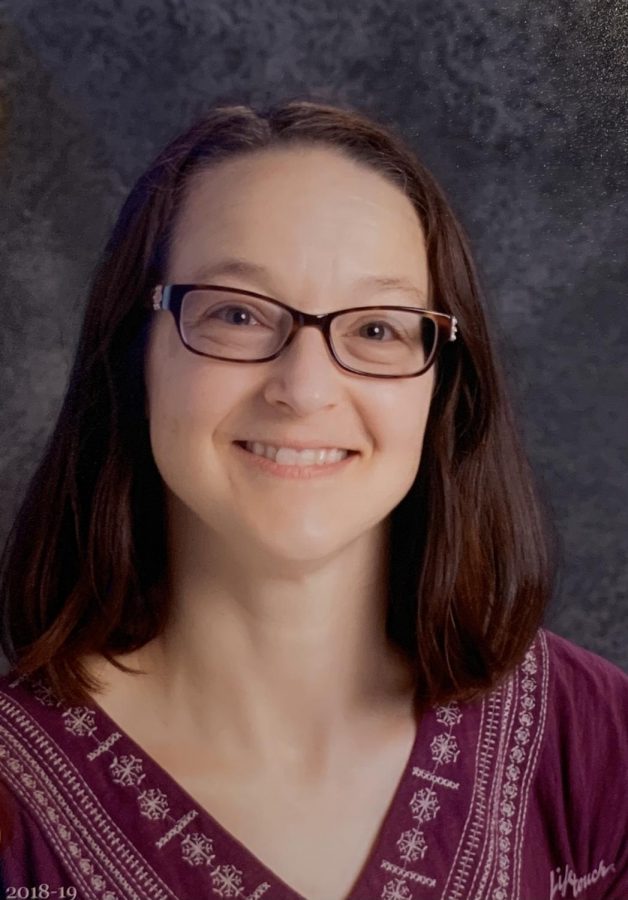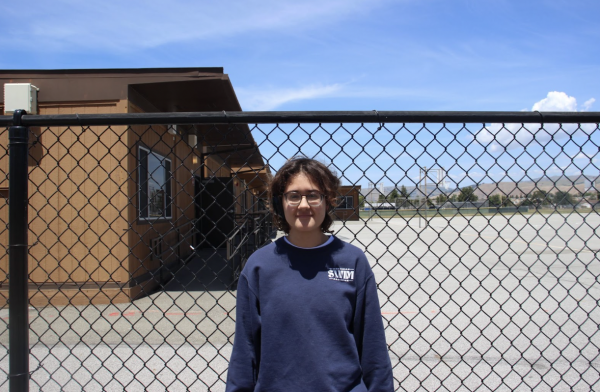Mother’s Day Teachers: Ms. Faitel
For me, the biggest challenge is trying to be both a mother and a teacher, to the degree you want to be. My 14-year-old daughter is very actively involved in sports on the weekends. This past week, she had a tournament. To drive her there, to be involved with the games, that’s very challenging because I also have things I need to grade. I find that I want to spend time with my daughter as much as I can, and with my husband as a family, especially on weekends. But I also always have work to grade. I feel like it’s hard to do both really well; I tend to put more time into one or the other.
I think there was a misconception, especially when I was first deciding to go to work, that somehow I’m going to automatically neglect my child if I work. I think that I appreciate the time with my daughter, much more than I think I would if I was home all the time. I definitely think there was the stereotype that you can’t be working full-time and be a good parent but I find that I appreciate the time with my daughter more because I work.
I have many funny stories I tell my students all the time. One thing that makes it very nice is because I teach AP psychology, I can almost always find a story about my daughter growing up and I hope she doesn’t mind. When we do a unit about developmental psychology which is how children change as they grow up, one of the concepts we learn is something called egocentrism, the idea that children literally cannot take another person’s point of view at a certain age, like between maybe between the ages of two to almost six. My daughter would be in the backseat with a book and she would want me to read to her. She would constantly ask, “Mom, can you read?” I’d say, “Sweetie, I’m driving the car.” She’d say “But no, the book’s right here. It’s right here, you can see it. Can you just read it to me while you’re driving?” So I would say “No, I actually can’t!” I could see she did not understand or see my point of view. I would just have to say, “Later, I promise. It’s just not a good time” I remember thinking, because I’ve studied psychology, I know that’s just normal. I bring up that story for my students because I think that I’ve had stories about her growing up that I hope have helped my students understand some of the concepts we’re learning.
It’s funny, because the other one that comes to mind is that years ago, we had a former health teacher who asked everyone to give to an organization that does research for children’s cancer. And us teachers, what we did is, we said, if our advisors or classes raised a certain amount of money, we would all get our heads shaved. And so Ms. Burton did it, I did it, Mr. Willer did it, and a number of the PE teachers did it. So when I got my hair cut very, very short, my daughter at the time saw that Mom got a haircut but the little girl next door said, “Your mom’s a boy now, she has no hair. She’s a boy!” And my daughter was like, “Are you a boy now?!” It’s just a normal stage of development where you think hair length corresponds to gender. But again, I’ve told that story and the idea that younger children just don’t think like adults.
There’s a lot of stories from when she was little but I think I will say one of my proudest moments were these times when she said she couldn’t do something. She used to be in competitive gymnastics, and there was this rope. She was asked to climb from the floor to the ceiling. And she said, “I’m never gonna do it, mom.” It was very hard. And I said, “One of these days you’re going to do it, one of these days.” I was really proud because she didn’t give up. I know she was frustrated and she wanted to quit but she didn’t and the day she climbed all the way to the top and touched the ceiling, that was a really great moment, just as a parent. She didn’t give up, so just a really strong memory. So now, when she has problems or things she thinks she can’t do, I’ll remember that story and say, “Hey, remember that time you said you’re never gonna do that?” That was really nice.






